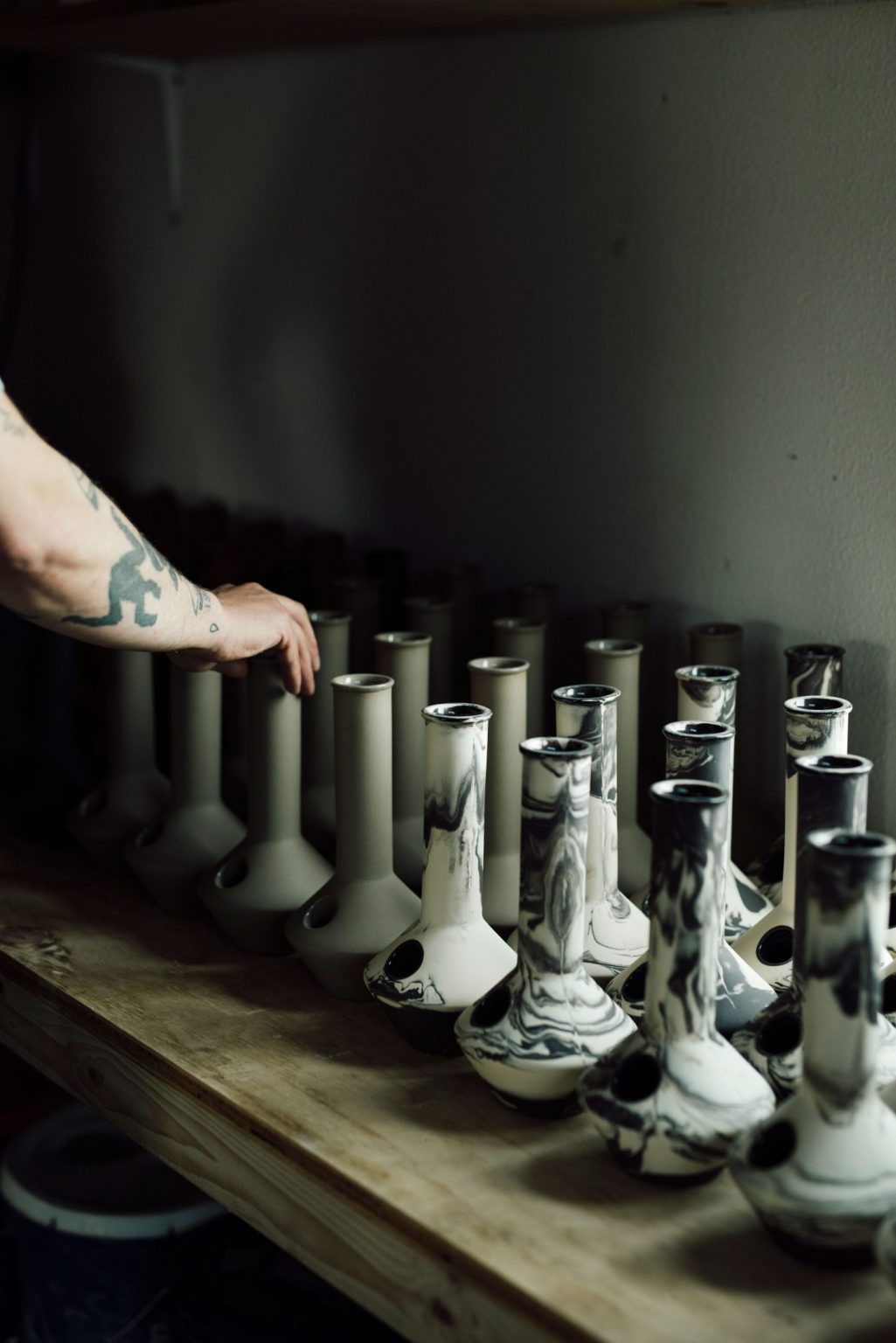An eternal summer on a coast of smooth white sand represented in ceramics. Liam Kaczmar set out to make what he couldn’t find elsewhere when he dreamed up Summerland. His one-man operation in San Francisco has allowed him to escape the dissatisfaction he found in: having to put in 70-hour weeks for bosses, having to settle for poorly designed bongs, having to put his design and art direction skills to work making other brands look better. Summerland as Liam envisions it brings access to imagining something better for those firmly engrained in stoner culture and those who are intrigued by the idea for the first time when they come across one of his bongs on the shelf of a clothing boutique.
Summerland operates at a higher-level than what people might expect from a purveyor of bongs so when Alex Maeland was in California earlier this year he sat down to have a conversation with Liam. They spoke about the company’s beginnings, how the changing perceptions of cannabis impact Liam’s plans for growing Summerland, how running a business can stamp out creativity, and what widespread legalized cannabis usage in the States might look like. Liam is a creator with ideas percolating who patiently waits for the right time and place for each to come to life, so expectations for whatever comes next from him can be set high.


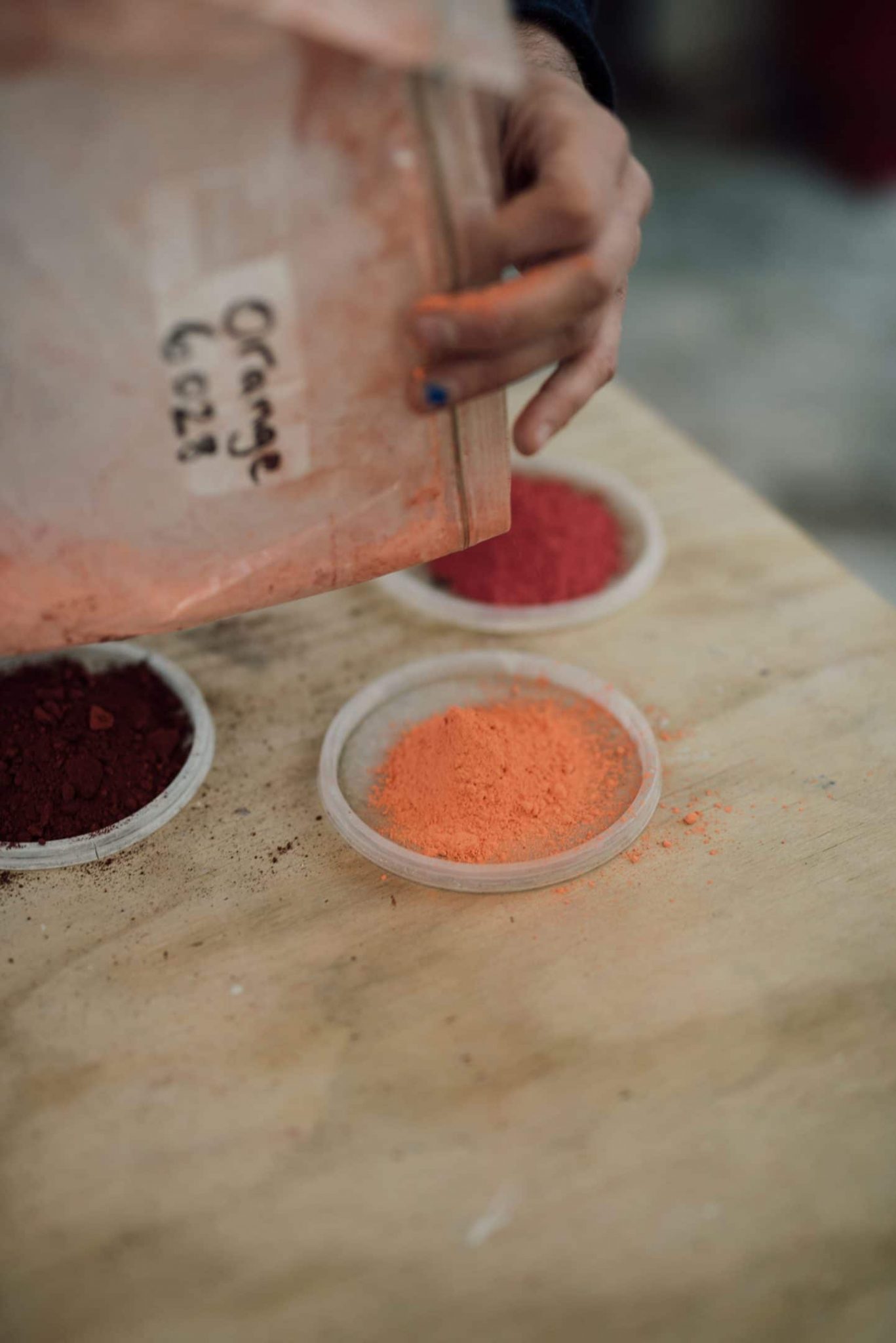
At MAEKAN, the story defines the medium. Some stories function best as written text, others hope to capture the emotion through an intimate audio experience. In cases such as this audio story, the transcripts we provide are done to the best of our ability through AI transcription services and human transcribers. We try our best, but this may contain small errors or non-traditional sentence structure. The imperfection of humans is what makes us perfect.
Liam Kaczmar: I get that a lot, like, “I don’t even smoke, but this is a really nice bong.”
Alex Maeland: “I’ve never thought of a bong that way!” Right?
Liam: Which is weird to me because it’s so obvious, why hasn’t this bong existed before? It’s so obvious to me.
Alek Rose: Over a century ago, California passed the Poison & Pharmacy Act of 1907. This banned the sale of opium, cocaine, or morphine without prescription. In 1913, cannabis was added to this list, making California the first American state to outlaw marijuana. Almost 60 years later in 1972, the Golden State attempted to decriminalize possession and sale of the drug. The attempt was shut down, with 66.5% voting against it. From this moment on, laws against the possession of cannabis slowly began to loosen, with marijuana being legalized for medicinal purposes. In 1996, on the 1st of January 2018, marijuana was legalized in the state of California—the first American state to do so. This change in legislation has, of course, opened a promising market for cannabis-based businesses, but at the same time, roused debate around the drastic change in attitude towards those involved in a previously illegal, demonized industry.
Liam: My name is Liam Kaczmar. I live in San Francisco, California, and I run a brand called Summerland.
Alek: Summerland is a brand focused on stylish, minimalist stonerware. The self-dubbed “lost hideaway for sun seekers, wave worshippers and coastal daydreamers, where the nipple is eternally, irrevocably freed.” Liam sat down with MAEKAN’s Alex Maeland to discuss the birth of Summerland, how he envisions its growth parallel to the changing perceptions of cannabis and his hopes and fears with regards to the coming years of legal marijuana in America. We started with the question, “Why did he leave Syracuse, New York?”
Liam: Honestly, I didn’t really know where else to go in America. I tried to move to Montreal, but at the border they were like, “Why are you coming to Canada?” and I was like, “I’m trying to move to Montreal. I want to go look at some apartments.” And they were like, “You can’t just move to Canada. Sorry, don’t come here.” Next stop, there was San Francisco. I was really into fecalface.com back in that time, that was when that website was really raging.
Alex: What is that?
Liam: It’s not really active anymore. It was an art website for, like, lowbrow graffiti-based art, street art, that kind of Juxtapoz-style art. That was based in San Francisco and they would post a lot of the gallery shows at the time when it was really thriving.
Alex: What was your background leading up to what you’re doing now. I mean, you’re a designer, art director, I guess, first and foremost?
Liam: Yeah, I went to school for painting. But right out of school, I moved to San Francisco and tried to be a designer just because it seemed like the most money for a young creative at the time and my painting style was very design-based. Also, there’s a lot of screen printing and very clean style stuff and it just kind of lent itself to design. In school, I worked at a design shop that kind of taught me the ropes for design and, yeah, I just went straight into design out of school when I got to San Francisco and then I was freelance designing there for a good five or six years, just doing random kind of logo work, branding. Then, I started a clothing brand called Teenagers In Love. It was just screen printed tank tops and sweatshirts. I started to try to cut-and-sew stuff, but didn’t really have a whole lot of money at the time, so it was tough to do. But I was working in a studio with a seamstress and the seamstress was also a ceramicist; she was in school for ceramics. During that time, I kind of started to think about designing smoking stuff. Randomly, it just started like, “Oh, it’d be really cool to design like a really minimal bong.” So we started to work on the apple pipe as the first product. This was in 2011. That was what kind of launched Summerland the brand.

“It was a friend of mine’s girlfriend, the first time I met her. He was like: ‘This is Liam, he makes these bongs.’ She was like: ‘Does the world really need that?’”
Alex: And at the time, you didn’t have a name yet, or you did?
Liam: I did. So Teenagers In Love, the clothing brand—I actually hate that name. I wanted to change it to Summerland. Then when we made the apple pipe which is now The Fruit Fantasy, I just dubbed that immediately Summerland Ceramics.
Alex: Where did the name come from originally?
Liam: Summerland to me was the thought of a place where you can go that there’s this idea of eternal summer. Just north of here, there’s Summerland, California and I used to drive by there on the way to LA and I would just have this image in my mind of this utopian place called “Summerland” where everything’s nice and easy. With the smoking stuff, that was kind of the idea of when you get high with these things you get transported to this summer land.
Alex: So you had the clothing brand, so you were into fashion first and then that parlayed… I guess really like a similar aesthetic in some way to ceramics. You started with the apple pipe initially, and then at what point did it really become a brand? Because one thing that I really personally respect about what you guys do is just the whole aesthetic of everything that you’re doing. It feels more refined, it feels mature, not in an old-timey way but like in a good way. It speaks to the more evolved smoker, I guess you could say. How did that all develop?
Liam: The aesthetic of it kind of developed from “this is what I was looking for.” This is the bong that I wanted to have and I couldn’t find it, so I made it.
Alex: But then did you have any background in ceramics or industrial design?
Liam: Yes, I did. When I was in school, I actually started in college as an industrial designer. So I went to industrial design school for one year and dropped out because it was too restrictive and all my drawings I was designing, all this super minimal stuff—this is in the mid-2000s when they wanted everything to be really ergonomic—they would like diss all my drawings because they were too minimal. They weren’t crazy enough. I just got really bummed on that and then realized I didn’t want to be in school for industrial design, I wanted to just do art and with the art programs you can take a lot more flexible curriculum. I was able to take design, printmaking, sculpture classes. The sculpture classes taught me so much more about design than industrial design school ever did in terms of prototyping, moldmaking. It was just way more hands on, way more all-encompassing. So I feel like at the end of my college experience, I came out with a lot. I was way more multifaceted creatively than I would have been in just design school.
Alex: Do you think that ceramics is what defines Summerland or do you see a future of you guys doing other stuff?
Liam: No, I see a future of us branching out. The name Summerland, we often get referred to as Summerland Ceramics, but I always try to cut it short to just Summerland. On Instagram it’s Summerland Ceramics though, I can’t get @Summerland.
Alex: Who has @Summerland?
Liam: It’s an account with, like, six followers.
Alex: Do you have, like, the IP or anything to Summerland, like your intellectual property or trademark or anything?
Liam: No, it’s Welcome To Summerland, LLC.
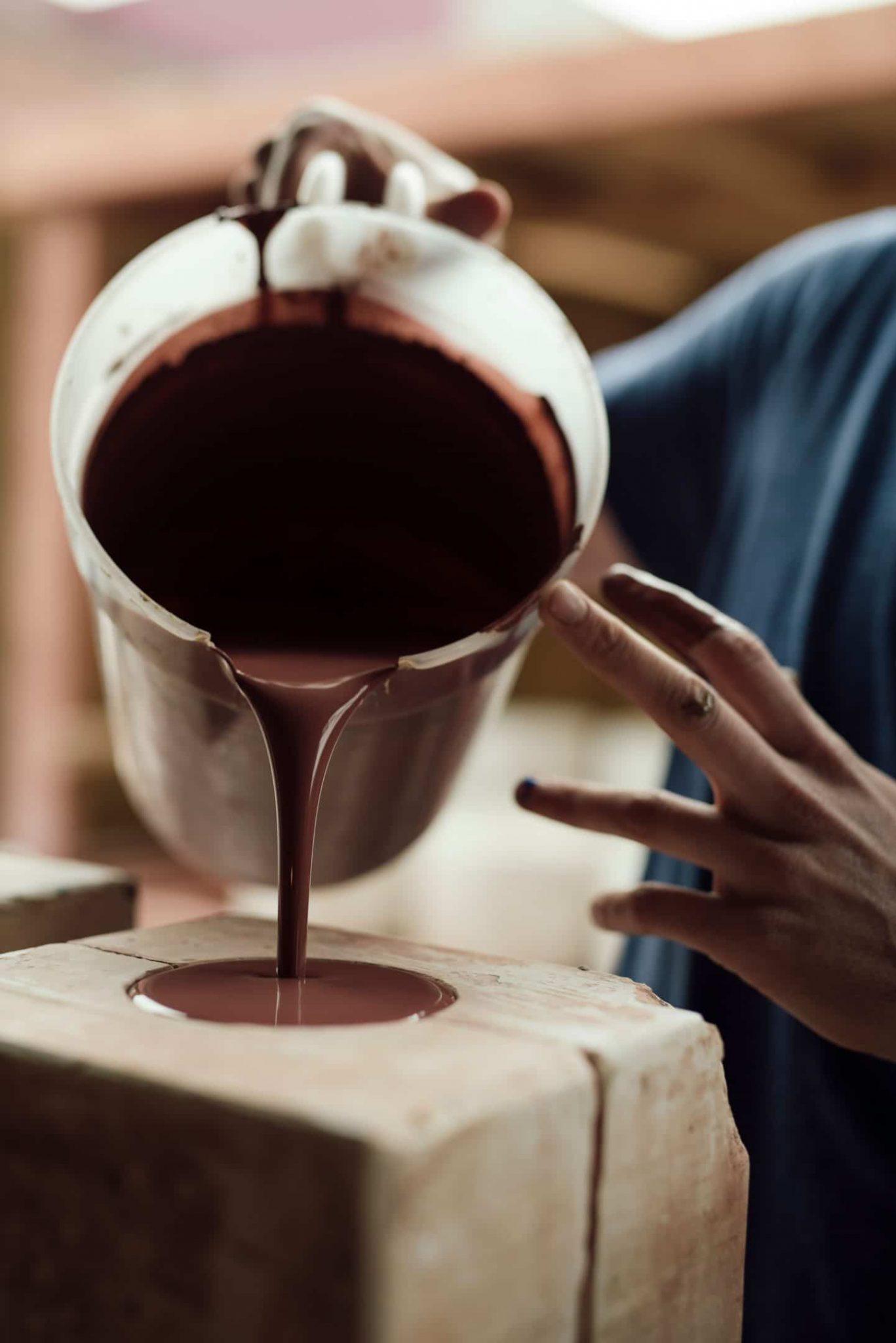

Alex: You may still be able to apply to Instagram to get your thing.
Liam: Yeah. I have a friend that’s an art director at Instagram and I keep hitting him up like, “Hey, let me get it. Let me get it!”
Alek: Being a hub of advancing technology, innovation and venture capital means that being stationed in Silicon Valley often implies something about a company, almost a statement of intent. Liam, however, does not comply with this trend. Although the attitude that holds growth above all else of the area does push Liam to think about his future with Summerland, he understands the undesirable byproducts of investment.
Alex: I’m curious—you being in SF now, does the culture of being in San Francisco or Silicon Valley at all play into how either you design or how you see Summerland as a company?
Liam: It does and it doesn’t. I mean it does in the sense that I think about where the brand could go with the kind of investment and venture capital and all the money being thrown around there. I think about, “Should I take advantage of this? Should I gear it as a startup more than just a brand to try to grow it faster?”
Alex: But is that really what you want from this?
Liam: It’s not what I want, I don’t want investment. I don’t want to answer to some fucking suits, you know?
Alex: Not to digress too much, but we’ve kind of gone through a similar introspective period because with MAEKAN, it’s media and it’s friendly to something that someone might invest in in the media space. But the whole reason we started it was—this sounds corny—but was really for the culture, to do things the way we wanted to do it, to have our point of view on culture, and to do it that way. I imagine the same is probably true.
Liam: Yeah, I mean, I started Summerland, I went full force after working in advertising for four years, and just being so burnt out on having a full-time job and bosses and co-workers and I started it as a reason to not have a boss. If I were to turn into a startup and bring on venture capital, I’d have a fuck-ton of bosses. That’s kind of going through my head a lot lately with the growth of the marijuana industry and being in San Francisco with all this venture capital.
Alex: What did you do in the advertising world?
Liam: I was an art director.
Alex: Okay. You worked at agency level or ad agency?
Liam: Yeah.

Alex: And that was a career path of being a creative and an artist?
Liam: Yeah, I was a designer, a graphic designer just bouncing around San Francisco doing freelance graphic design. I kind of slowly realized I didn’t want to do graphic design, maybe I wanted to do broadcast style stuff like motion, video. So I started to look into ad agencies to try to get into that field.
Alex: And that didn’t last that long?
Liam: No, I mean, I still do freelance. I became a commercial director through that step. So I do the bongs and then I also do commercial direction and do some short film kind of stuff too.
Alex: What’s an example of some stuff you’re working on on the commercial direction front?
Liam: So I shot a short film last year, that was all personal work, it’s like a stoner comedy series and then commercially, I have a few small gigs. At the agency level, I was doing stuff for The North Face, Pepsi, Methodhome and then since I’ve left the agency, I’ve done smaller project-based stuff.
Alex: I can see that experience then playing into Summerland being just really well packaged.
Liam: Yeah. Working as an art director at an ad agency really taught me a lot about brands and how to run a brand creatively because that’s what I was doing. I was just a hired hand to make these brands look better. So I definitely translated into Summerland.
Alex: So Summerland right now is just you, more or less?
Liam: It’s just me, more or less. It’s me, and then I do production with two different factories. I have a sales rep and then just hired friends to help out occasionally.
Alex: Yeah, how are you getting the word out there sales and distribution-wise? Is it just relationship-based?
Liam: Yeah, it’s relationship-based. My sales rep runs four other brands and he’s really good at getting me in shops.
Alex: What’s the main distribution channels for you guys? Is it Mister Green-type shops, or is it all of the above?
Liam: It’s all over the place. It’s like Mister Green-type shops, women’s clothing boutiques, dispensaries, shoe stores. We’re not in any shopping plaza head shops or anything like that.
Alex: Intentionally not?
Liam: Yeah. At this point, intentionally not. But yeah, it’s half the dispensary level and then half clothing boutiques, which is really interesting because you don’t go into a clothing boutique expecting to see a bong on the shelf. But I also feel like the people going into clothing boutiques are the people who want this product. So it’s been interesting to come into this space through that audience.
Alex: Almost through a lifestyle avenue.
Liam: Yeah, exactly.
“Growing up, weed was really scary. It had this really scary image, like the graphic bongs with the evil jester and all the weird goth kids and stuff, that looked fucking scary. I wasn’t into it. It scared me.”
Alek: Liam’s history of design distinguishes Summerland as a design-centric cannabis brand, using design as a starting point instead of cannabis. This has opened up a new side of the market for Summerland. The possibility of being sold next to homeware in boutiques has positioned the company well for growth outside of the world of weed. This doesn’t remove Summerland from criticism though. Although the public image of weed smoking is changing rapidly and it’s one of the main aims of Liam at Summerland, he understands that not everyone will be on board from the beginning.
Alex: I want to talk a bit about that because I think that Summerland sits at the intersection of prototypical stoner, smoking culture and just a broader lifestyle of a person who smokes, and who is creative and whose life is driven by design, I guess you could say. Is that something intentional for you guys?
Liam: Yeah, definitely. It’s a higher-level smoking accessory, but I also very intentionally do not deny the stoner culture. I embrace that more than deny it.
Alex: I think it’s cool because you guys have the DNA, but also if you don’t come from that world or if you aren’t necessarily cut from that cloth, and let’s just say you only have dabbled in weed in a medi-rec, legal space. It’s also accessible to you. You know, it’s a tool that can be accessible to you as well. Like I said, it sits on my shelf and people who don’t even smoke that come over are like, “That’s cool.”
Liam: I get that a lot, like, “I don’t even smoke, but this is a really nice bong.”
Alex: “I’ve never thought of a bong that way!” Right?
Liam: Yeah. Which is weird to me because it’s so obvious, why hasn’t this bong existed before? It’s so obvious to me.
Alex: What are some positive things people say about it and then also what is some shit that you might get for what you’re doing?
Liam: The most negative thing I’ve heard was one girl was like, “Does the world really need that?”.
Alex: To your face?
Liam: Yeah, to my face. It was a friend of mine’s girlfriend, the first time I met her. He was like, “This is Liam, he makes these bongs.” She was like, “Does the world really need that?”
Alex: Was it in a curious way or a condescending way?
Liam: I don’t know.
Alex: That’s the go-to question that people ask if they can’t come up with something negative to say something but they want to, “Does the world need that?”
Liam: Yeah, I don’t know. So that’s probably the most negative thing I’ve heard. The most positive thing, just people saying that it’s the most beautiful bong I’ve ever seen. It’s pretty cool to hear that.
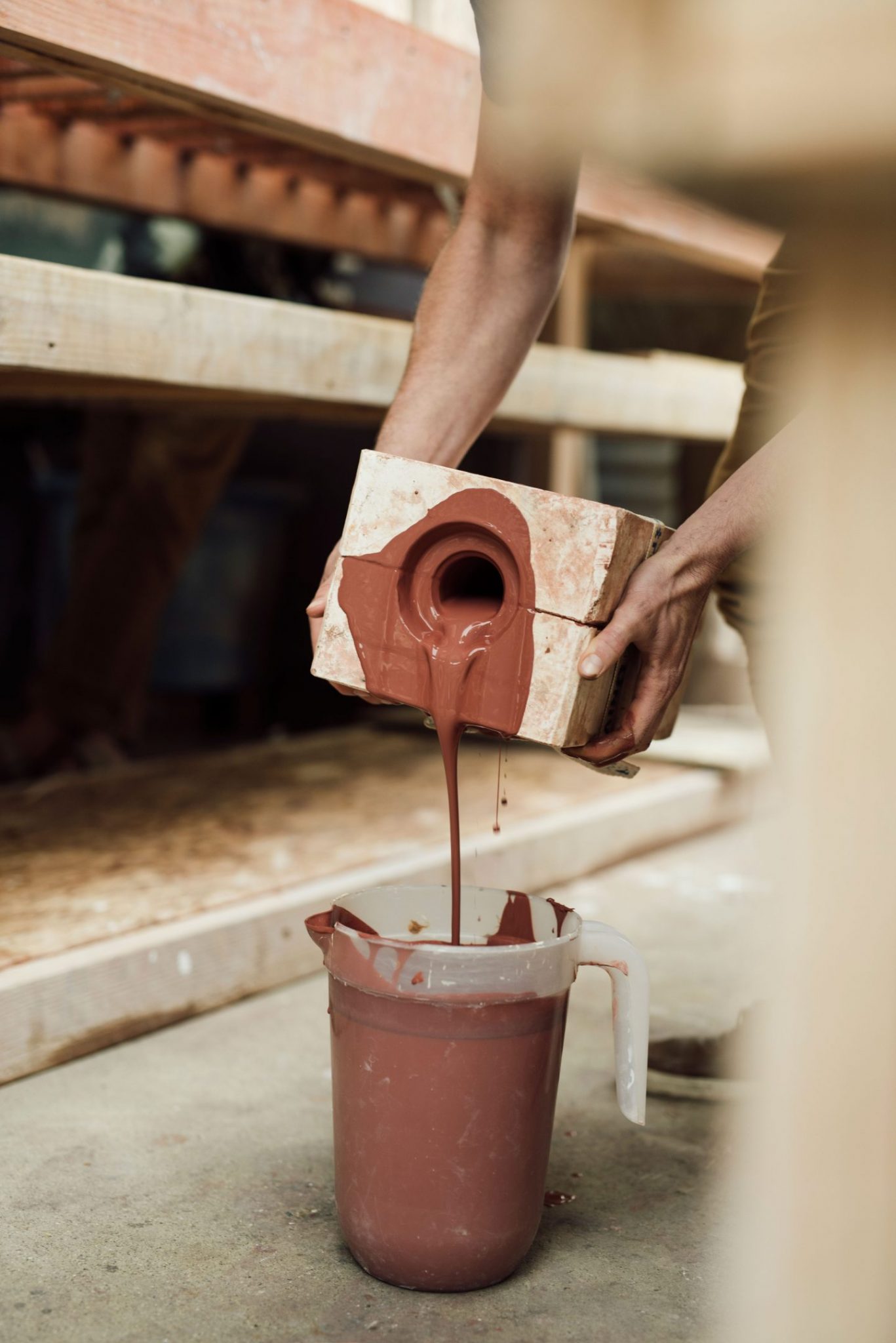
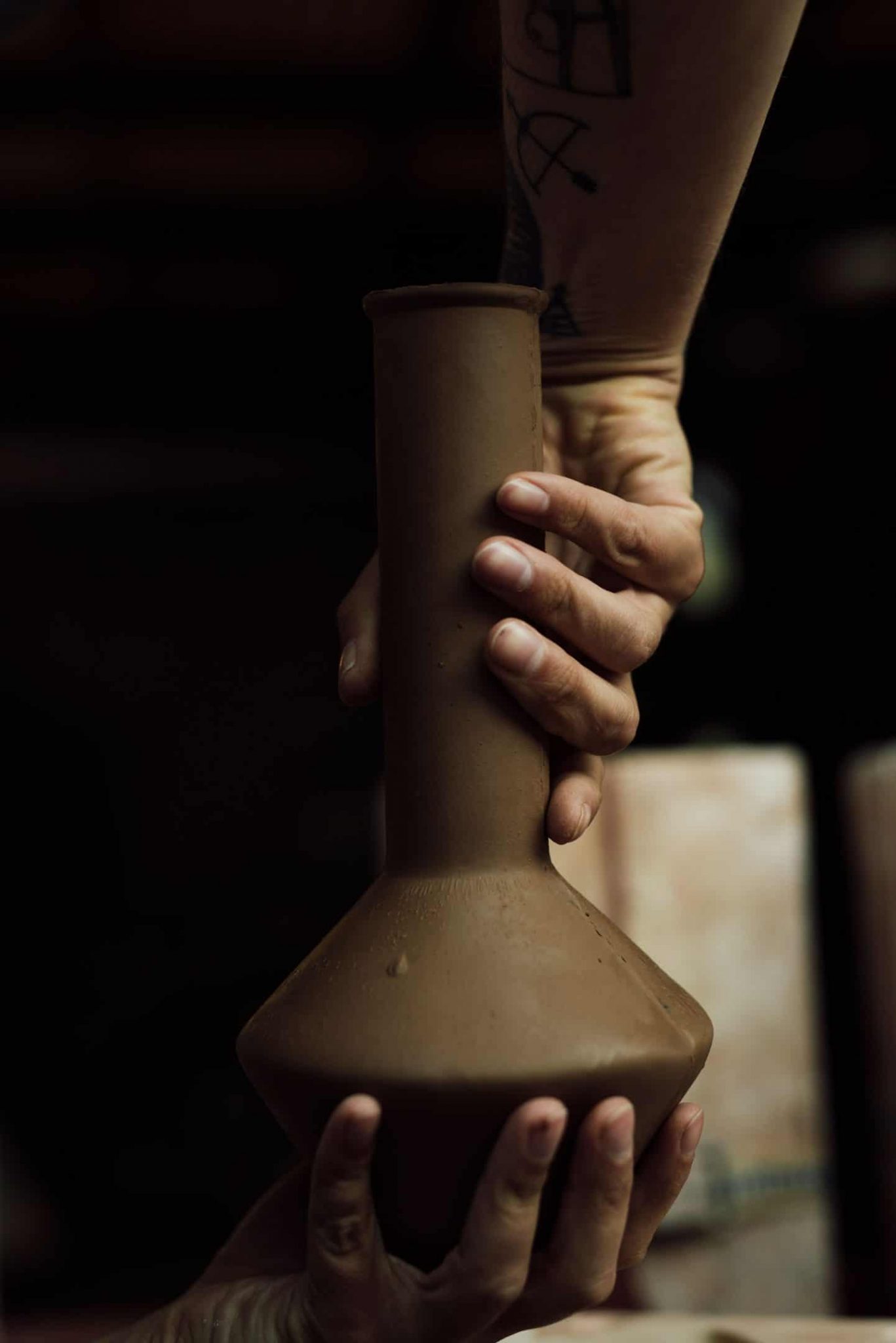
Alex: So you’ve been at this seven years, technically?
Liam: Technically seven years. So yeah, we made Fruit Fantasy version one. Currently, it’s in second round redesign from the first version, but that was in 2011, but I didn’t really start the brand until 2015.
Alex: Meaning just getting serious about it being a thing?
Liam: Yeah. I mean, basically in 2011, I went totally broke and ended the clothing line, stopped all production on Summerland, moved out of my studio, got an ad job, worked 70-hour weeks and then got super burned out, the whole time thinking about Summerland and how I can really do it right. Then four years later I quit and the first thing I did was Summerland.
Alex: Were you working on it on the side or moonlighting at all?
Liam: I wanted to be, but I wasn’t. I was just too busy.
Alex: And did you quit specifically because you were like, “Alright it’s time to fucking do this,” or did you quit because you were just over it and then that was just the natural?
Liam: I quit because I was over it and then it was just the natural progression. Like, “Oh fuck, I need to make money now. I still have money from this ad job, I should invest it in a business so that I don’t have to go and find work really quick.”
Alex: So you’ve been smoking weed for a long time before?
Liam: Not really, I was straight-edge growing up. I was one of those kids who is straight-edge till he’s 21 and then I started smoking when I was 21, but not regularly. I didn’t really regularly smoke until I was maybe 24 or 25. I’m 32 now. Growing up, weed was really scary. It had this really scary image, like the graphic bongs with the evil jester and all the weird goth kids and stuff, that looked fucking scary. I wasn’t into it. It scared me.
Alex: Yeah, I was pretty straight-edge growing up. The first time I smoked weed was, like, 3 years ago actually. I grew up super straight-edge. I grew up in Georgia, so it was like the Bible belt. It was straight-up narcotic, it was very demonized. What do you think about it now, did it take you personally a while to mentally come out of that mindset?
Liam: Not really. No, I don’t think… I think it took one hit to come out of that mindset. Thinking about it now, though, looking back on it, I’m really glad that I didn’t smoke weed when I was young because I don’t think teens should be smoking. I think it really does fuck up your brain when it’s developing and I feel way sharper than I probably would be if I was smoking when I was a teen.
Alex: Do you see what you’re doing with Summerland as a bridge of removing that stigma, or is that not really an intention?
Liam: Yeah, it is. This product is really helping normalize smoking weed and helping it look a lot more friendly in a sense. This is a bong that you can leave on your table while your friends come over and you’re not like, “I’ve got to hide this bong. This is embarrassing.” It’s not embarrassing through this product and it’s also like people will buy this bong instead of not buying a bong. People might experience smoking out of a bong now because there’s so much gross, ugly glass that doesn’t appeal to this specific type of person and it’s not even saying that this is a high-class kind of person. This is just a normal person.
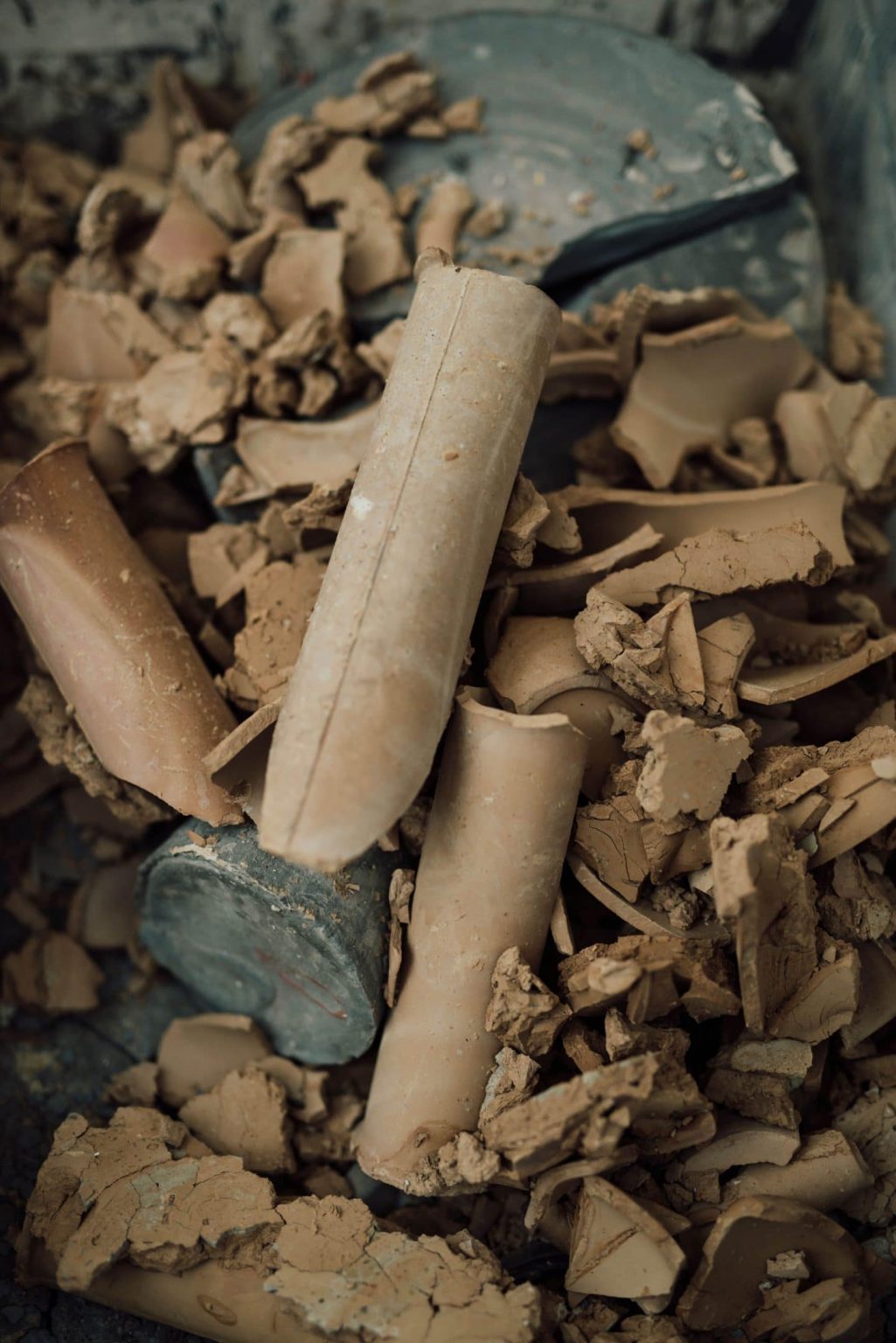
Alek: Liam has an unmistakable can-do attitude that values independence. But running a company by himself can take a toll on creativity. Striking a balance between making sure that the business runs smoothly and also nurturing the creativity that drew him to starting the business is something that he is still coming to terms with.
Alex: What have been some of the challenges that you’ve had over the last couple of years?
Liam: Just running a business mostly. Running a business on my own is super hard, especially like a lazy creative stoner type. There’s so many things that are so hard to stay on top of. That’s been the biggest challenge, just the business side of things.
Alex: What specifically?
Liam: Like bookkeeping, paying your taxes, staying on top of all those little things that make it hard to run a business.
Alex: Do you find it hard to stay or maintain creativity amidst maintaining that?
Liam: Absolutely. It really bogs me down. I mean it’s so overwhelming to do that kind of work that I end up spending all week doing business work and really only get to focus on creative work a couple of times a month.
Alex: How do you mitigate that?
Liam: I don’t know if I’m mitigating it right now. It’s a balancing act. It’s knowing when you have to focus on what certain thing.
Alex: Yeah, when we started MAEKAN, initially there was this idea, the same as you, “Okay, I’m leaving this one thing because it sucks and it’s all convoluted and there’s all this nonsense. As soon as I start my own, it’s just going to be roses.” And then you quickly learn that there’s all this other shit that, even though you know that it’s important, you go through a 40-hour week and you’re like, I actually didn’t create one thing. I’m a photographer and I’m like, when was the last time I picked up a camera? It’s challenging, I think, sometimes.
Liam: Yeah, I mean, I’m the same. I’m a photographer and I haven’t shot a photo outside of Summerland in two years. I really miss that experience of just going out and shooting. I just haven’t had the creative energy to focus on that direction.
Alex: You must realize or see the potential business upside of what you’re doing as well, right? And is that an ambition of yours to see this thing…
Liam: Yeah, it is. Definitely would love to see it grow. I’d love it to be across the country in stores, worldwide even. It’s the perfect time to be doing something like this. Marijuana is just getting accepted more and more everyday, it just makes sense that I’ll grow with marijuana use.
Alex: What do you see your personal role being as the business grows?
Liam: I see my personal role as being a creative director ultimately, more than anything else that’s pretty much what I’ve been doing with this brand, overseeing all creative.
Alex: What’s the design cycle like? Are you constantly trying to iterate on new shapes and things like that?

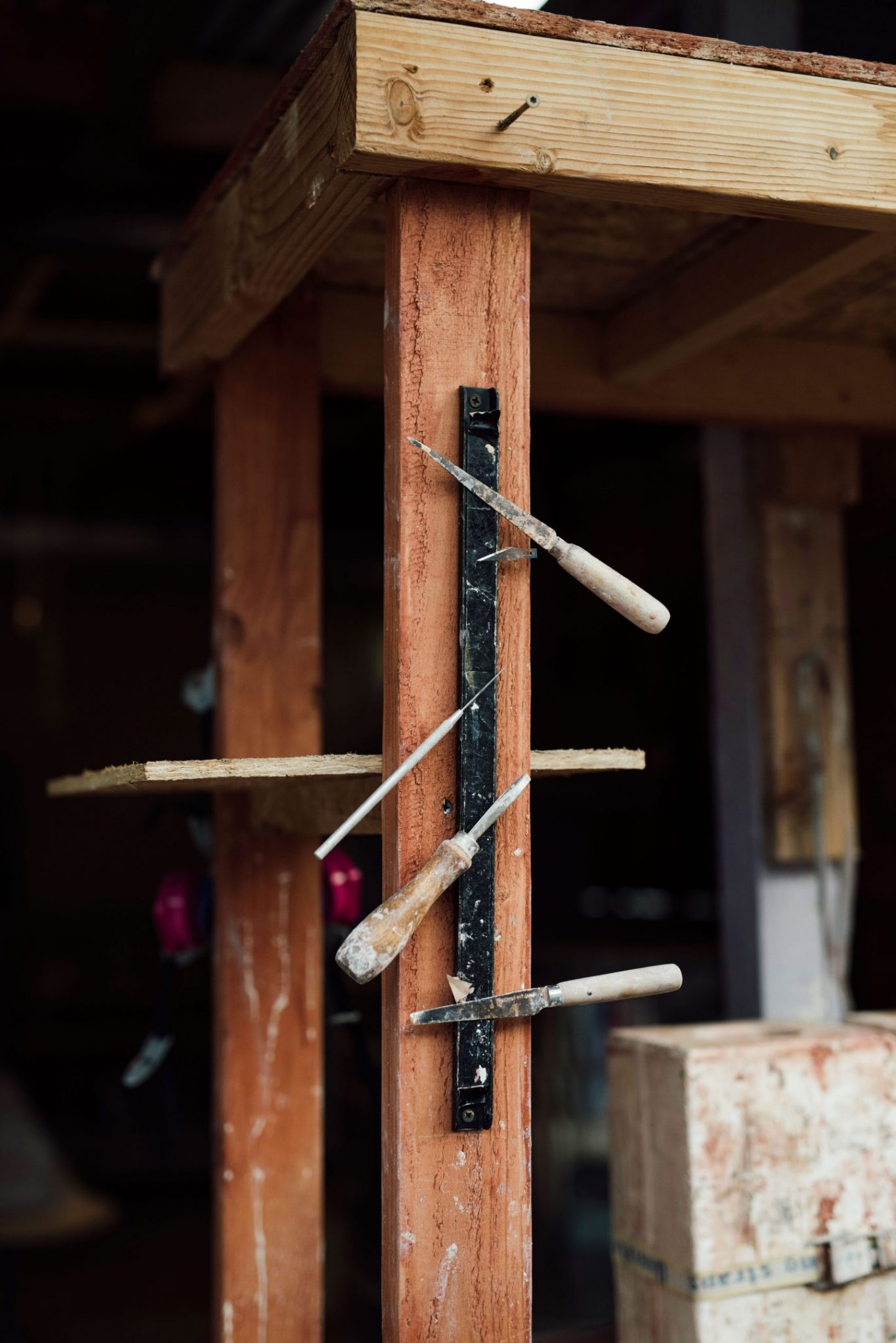
“If I were to turn into a startup and bring on venture capital, I’d have a fuck-ton of bosses. That’s kind of going through my head a lot lately with the growth of the marijuana industry and being in San Francisco with all this venture capital.”
Liam: Not really. I actually have kept it really really slow intentionally because out the gate, we started with five products, which is kind of rare for a small design brand. Usually, people start with one product and lead with that one product for a while.
Alex: Which five was that?
Liam: It was the three bongs, the Pleasure Point, the Chongo, and the Land Yacht bong, and the two pipes—the Crystal Voyager and the Fruit Fantasy. Really from that point, we’ve only released one new product, which is the Some Hitter, but we went for a good two years with just the whites, just the all-white products. Then just this Fall, we released the stone-colored products. So it’s been intentionally very slow. My mind is really built up with all these things that I want to do, but I know that each thing has its perfect time and place to really play out. Even the brand Summerland as a whole, I had it ready in my head in 2011, but never really pulled the trigger till 2015. I really like to just ruminate on ideas even outside of ceramics and design. I have a lot of ideas just in the back of my head on the backburner all the time, but they might be there for three or four years before I really bring them to fruition. So as far as next products, we do have stuff coming out. I don’t know how long that will be before it comes out, but definitely plan on growing the line sooner than later.
Alex: This is more a personal curiosity of mine—do you personally feel like Summerland fulfills all of your creative ambitions, or do you also want to do other things outside of the brand?
Liam: I want to do other things. At this point it’s starting to become a job more than a creative outlet.
Alex: Why is that?
Liam: It’s just repetition. If you do the same thing enough, you don’t want to do it anymore. It’s not like I don’t want to do Summerland anymore. It’s like, I wanna chill out for a whole week and just paint, but I can’t do that because I’m running a business.
Alex: Yeah, I feel like it’s kind of inevitable. In some ways, when you do the same thing, no matter how good it is, as a creative person you need that spark again.
Alek: The cannabis industry has grown exponentially since legislation at the beginning of the year. This benefits businesses like Summerland immensely, but isn’t without issues. The new space in which Liam functions has been carved out by generations of people who suffered to reach this point. So the new generation of business owners in the cannabis world is often seen as undeserving to oldtimers. As well as the stigma attached to new cannabis businesses, the popularization of marijuana poses problems for Liam from a societal point of view. There will have to be an education process on behalf of American citizens learning how to interact responsibly with marijuana. This said, the changing attitudes towards cannabis signal a new era for America. If respected, marijuana could significantly alter recreational habits of the average citizen for the better. Think yoga, healthier food, and a better understanding of oneself.
Alex: I had this thought in my head of a future, whatever point in time, where marijuana is totally normalized, it’s very mainstream, and there’s a world where shops like Target are carrying these fusion objects that feel like a method on their shelves. What are your thoughts on that?
Liam: I don’t see why not. They carry fancy wine glasses. I hope in the future that acceptance is on that level and that people are smoking more that they’re drinking. I hope there’s that level of acceptance.
“This product is really helping normalize smoking weed and helping it look a lot more friendly in a sense. This is a bong that you can leave on your table while your friends come over and you’re not like: ‘I’ve got to hide this bong. This is embarrassing.’”
Alex: I talk to some people in the in the weed space and they’re vehemently opposed to the rec legal space and they feel like it’s ruining small businesses. Where were you at mentally with that stuff?
Liam: I think it’s going to be great for my brand. I do worry about it from a society standpoint. Myself and my weed experience, I’ve gone really deep into smoking and I’m on the other side of that now and having that perspective of when you rip a three-foot bong every day, what that does your motivation.
Alex: Yeah, that’s so valid.
Liam: Yeah exactly, and no one’s talking about that—no one’s talking about what happens when everyone is just burnt out. And also the accessibility for kids, kids are going to get weed so easily now. It sucks, but at the same time, it’s stupid that it’s been illegal.
Alex: Yeah, there’s the line between it being criminalized versus it just being totally whored out and knowing what the responsible interaction with it is. I think that a lot because like I said, I was very straight-edge growing up and then I smoke a lot of weed now, because a lot of time with work and everything you just want to smoke at night and go to sleep. But I definitely feel the effects of like being just absent-minded sometimes and completely forgetting things or being totally lethargic. There’s all these positive benefits of weed to my life, creatively, to work-life balance. But then I’m also sometimes like, “How did I forget that?”
Liam: But is it the weed or is it just us? Even when I was in seventh grade, everyone thought I was a total stoner because that’s just how I was. There is a lot of opposition from the people who have been growing and selling weed for years and years and years and now all these newbies are moving into the space. All this venture capital that I was talking about is moving into space. There’s definitely a bunch of weird political stuff happening with it. Some people are getting the short end of that stick when they they’ve been working hard for years and years and years and now are just getting left in the dust because these fancy bong brands are coming in and everyone buys that instead of the blower that’s been doing it for thirty years in his basement. That sucks. But also from accessibility standpoint, I don’t think it’s a bad thing that everyday America is getting high. I think that’s going to help everyday America in a huge sense. Marijuana is a gateway drug, but it’s a gateway to your subconscious. It’s going to help so many people just realize their true selves. That’s awesome. Ultimately, if people are putting down a whiskey glass and picking up a joint and starting to do yoga and meditate instead of eating shitty food the next day, that’s so great that society’s going into that level.
Alex: I’m really interested in the whole space and I think it’s changing so fast. Literally, it seems like every week there’s like something different that’s going on. There are the realities of these people who’ve been in the game for a long time getting phased out.
Liam: It’s even coming down to a racial thing. All of these white people are moving in and selling weed when all the minorities have been selling weed and getting sent to prison for years and years and years and now tech-y white boys are doing this shit and totally thriving. It sucks, it’s super unfair.
Alex: I 100% agree, but isn’t that just unavoidable because it’s a part of the fabric of really the country and how the business works, right? It’s very unfortunate, but how would you even prevent it?
Liam: I don’t know. There are a lot of programs starting. This is going to be so wrong, like so off, but Oakland is doing some kind of thing where people who have been maybe selling weed for a long time and they want to start a legit marijuana business can prove that and get the licenses easier because they have existing experience, they have this history. I don’t exactly know what they’re doing, but…
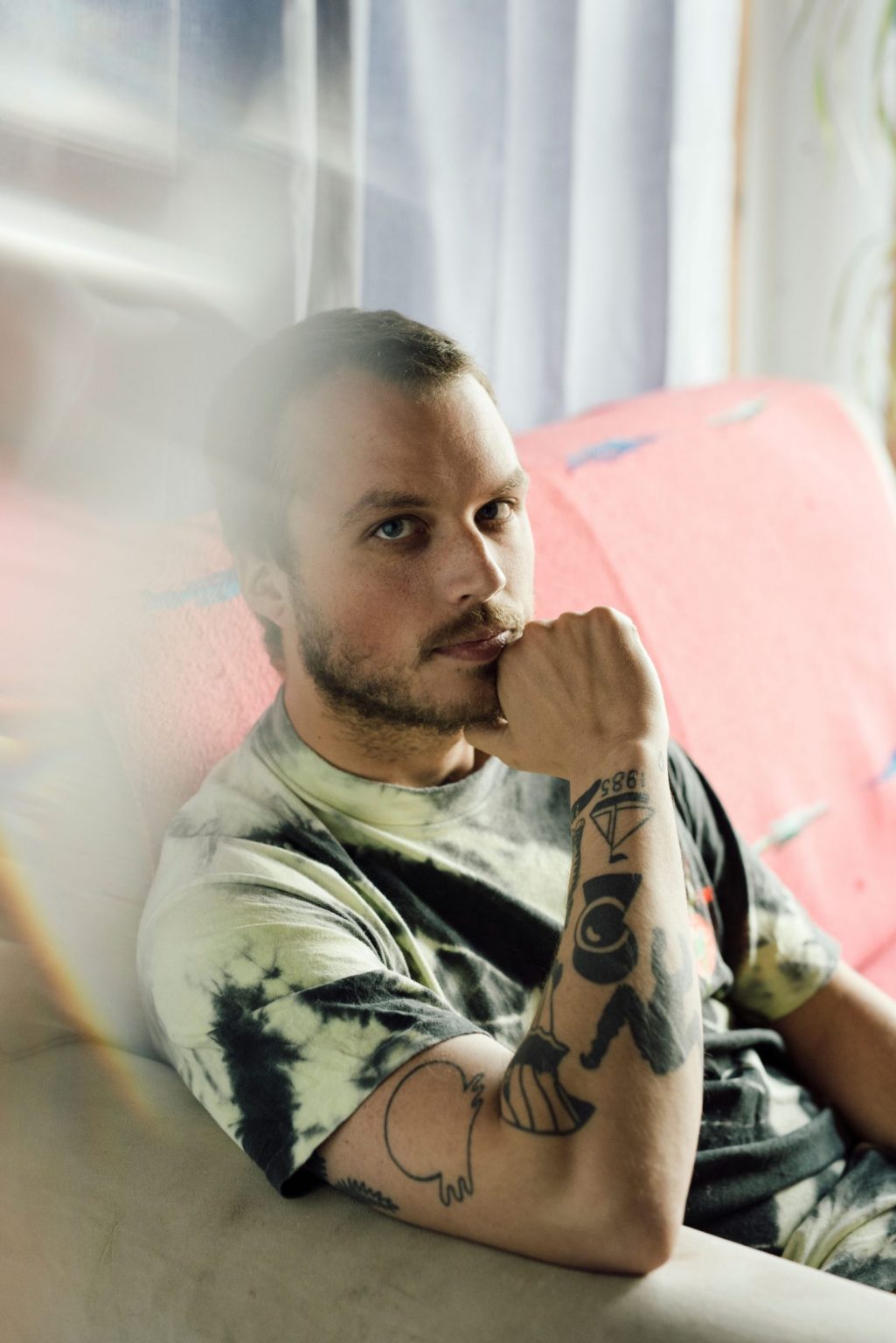
Alex: It makes sense, they have the experience, they have the expertise. They’ve earned their stripes, paid their dues.
Liam: Yeah, been treated very unfairly for years for selling a plant.
Alex: Do you ever want to get into the actual growing or manufacturing side of this industry?
Liam: No, I don’t think so. I grow weed at home and that’s fine. I don’t really want to ever get into actual weed production. I’m down to collaborate with a few growers, that’d be really cool. I would love to do a Summerland strain, but no, I don’t think I’d ever want to get into that space. In my mind, Summerland is starting with weed and branching out from there and not always honing in on weed.
Alek: It’s obvious that Summerland represents more than just a business for Liam. From the concept of the name to his reluctance to accept investment, Summerland truly is a haven for Liam, a location he has built for himself to escape societal norms and find his own way. Allowing somebody else access seems necessary but difficult for Liam. With more hands on deck though, Summerland will be able to expand its horizons while maintaining an authenticity to Liam’s passions. You can’t help but get the feeling that Liam sees an exciting time ahead—a time of education, development, growth, and lots more surfing.
Liam: I think if I wasn’t running this brand on my own by myself, having my hands in a million pockets at once, I think I would be a lot more fulfilled with the brand creatively. But because I’m doing all of this business kind of stuff, the whole thing starts to become a little annoying to me. So that’’ a reason to grow and bring on staff that I can just focus on creative and kind of get excited about everything again.
Alex: Do you think that that will be an easy step for you personally, bringing someone on board and trusting them and all that other stuff?
Liam: Yeah, that’s the thing is the trust. It’s really hard to just let go and trust someone with your baby in a sense. It’s going to be a learning experience.
Alex: How would you grow the team, what would be the priorities? Would it be a creative team?
Liam: I think just bringing on, ideally, the first couple of hires are just administrative, customer service, someone to do inventory.
Alex: Like hands, extra hands.
Liam: Just hands, yeah. I really just want to hire my friends though.
Alex: Yeah, totally. I’m a strong believer of hiring people, not roles.
Liam: Indeed, and then you’re hanging out with your friends all day.
Alex: Yeah, you’re hanging out with your friends all day, you actually look forward to going into work.
Liam: You get to go surfing and then go to work, like, “Hey, don’t come in at 8:00 tomorrow, let’s meet at the beach at 8:00 tomorrow.”
Alex: I’m kind of curious about your day-to-day. What does your day-to-day look like right now?
Liam: I mean, this isn’t good to say but… avoiding work. I surf a lot, my day-to-day is a lot of just like waking up, “What’s the surf like today? Oh, the surf’s not good… Alright I guess I’ll write these e-mails.”
